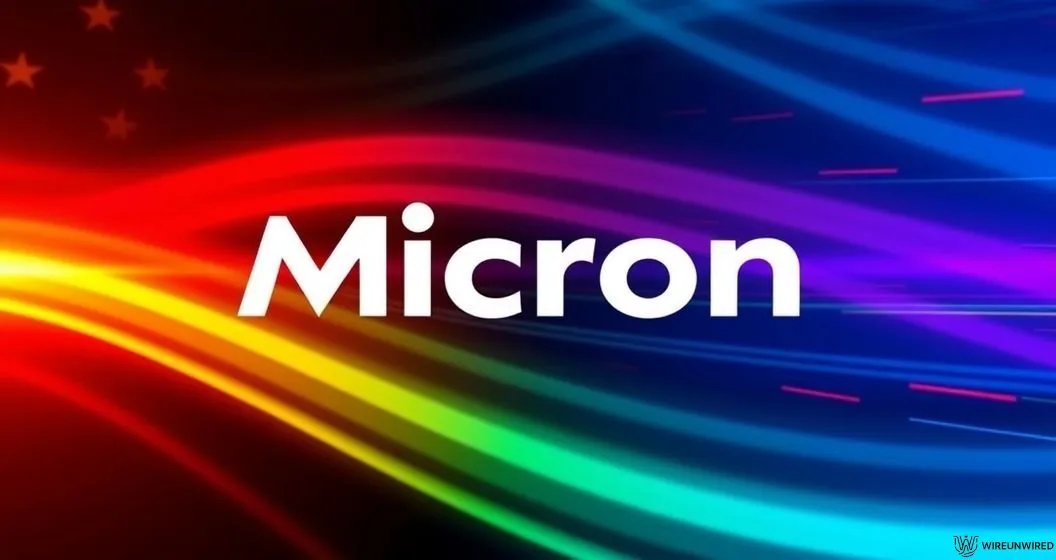- Micron Technology is withdrawing from China’s data center chip market after failing to recover from a 2023 regulatory ban.
- The move reflects intensifying US-China tech tensions and is expected to reshape the global semiconductor supply chain.
- Industry analysts and Chinese stakeholders express concern over local infrastructure and future chip supply as domestic and Korean vendors move to fill the gap.
Micron Technology, one of the world’s leading memory chipmakers, is making a decisive exit from the data center chip business in China, a move that underscores the deepening rift in global technology supply chains and the escalating regulatory pressures facing foreign firms operating in the region. The withdrawal, confirmed by sources close to the company, follows a year-long struggle to regain access to the Chinese data center market after a government-imposed ban in 2023 barred Micron’s products from use in critical information infrastructure, citing national security concerns .
Why Micron Is Leaving the Data Center Chip Arena in China ?
The heart of Micron’s decision lies in the fallout from Beijing’s 2023 ban, which effectively locked the company out of state-backed data center projects. Despite efforts to regain market share, Micron’s business in China’s booming data center sector failed to recover. The ban itself is widely interpreted as a countermeasure to ongoing US export controls restricting China’s access to advanced semiconductor technology.
According to industry sources, Micron will halt shipments of its DRAM and other server-grade memory chips to data centers in mainland China. However, the company will maintain its presence in China’s automotive and smartphone sectors and will continue supplying certain Chinese clients with data center operations outside the mainland, notably including Lenovo. Mainland China represented about 12% of Micron’s total revenue last fiscal year, translating to roughly $3.4 billion.
Geopolitical and Market Implications
Micron’s departure from the Chinese data center market is more than a business decision—it reflects a broader shift as the US and China compete for dominance in critical technology sectors. The ban on Micron and similar US export controls affecting giants like Nvidia, Intel, and AMD have forced these companies to develop scaled-back versions of their advanced chips for the Chinese market. The result is a shrinking pool of Western suppliers in China’s high-end computing ecosystem, leaving domestic and Korean firms to fill the gap.
South Korean companies such as Samsung and SK Hynix are expected to benefit from Micron’s exit, potentially strengthening their foothold in China’s server DRAM market. However, they too face challenges from recent US restrictions on chip exports to China. Meanwhile, Chinese chipmakers like YMTC and CXMT are ramping up production as Beijing pushes for self-sufficiency, though their products still lag behind international competitors in performance and manufacturing efficiency.
Local and Global Reactions On Micron Exit
The announcement has generated widespread concern among Chinese media, regional business communities, and global investors. Local stakeholders worry about the impact on China’s tech infrastructure and the reliability of future chip supplies, especially as investment in data centers linked to AI surged to nearly 24.7 billion yuan (approximately $3.4 billion) last year. Industry analysts are closely monitoring the situation for ripple effects across the global semiconductor supply chain and for signs of further escalation in US-China tech tensions.
Micron, headquartered in Boise, Idaho, has declined to comment directly on reports of its withdrawal but reaffirmed its commitment to abiding by local regulations wherever it operates. The company’s recent financial performance has been buoyed by strong global demand for memory chips used in artificial intelligence, suggesting a strategic pivot toward less restrictive and faster-growing markets outside of China.
Also Read :$40B Chip Loophole: How China Bypassed U.S. Export Controls
What Comes Next?
Micron’s exit from China’s data center chip business is set to reshape not just its own global strategy, but also the competitive landscape for memory chips in Asia. While South Korean and domestic Chinese suppliers may step in to fill the void, ongoing regulatory uncertainties and technological gaps pose significant challenges. For now, Micron’s withdrawal stands as a powerful symbol of the complex, high-stakes battle for technological leadership unfolding between the world’s two largest economies.
Discover more from WireUnwired Research
Subscribe to get the latest posts sent to your email.




